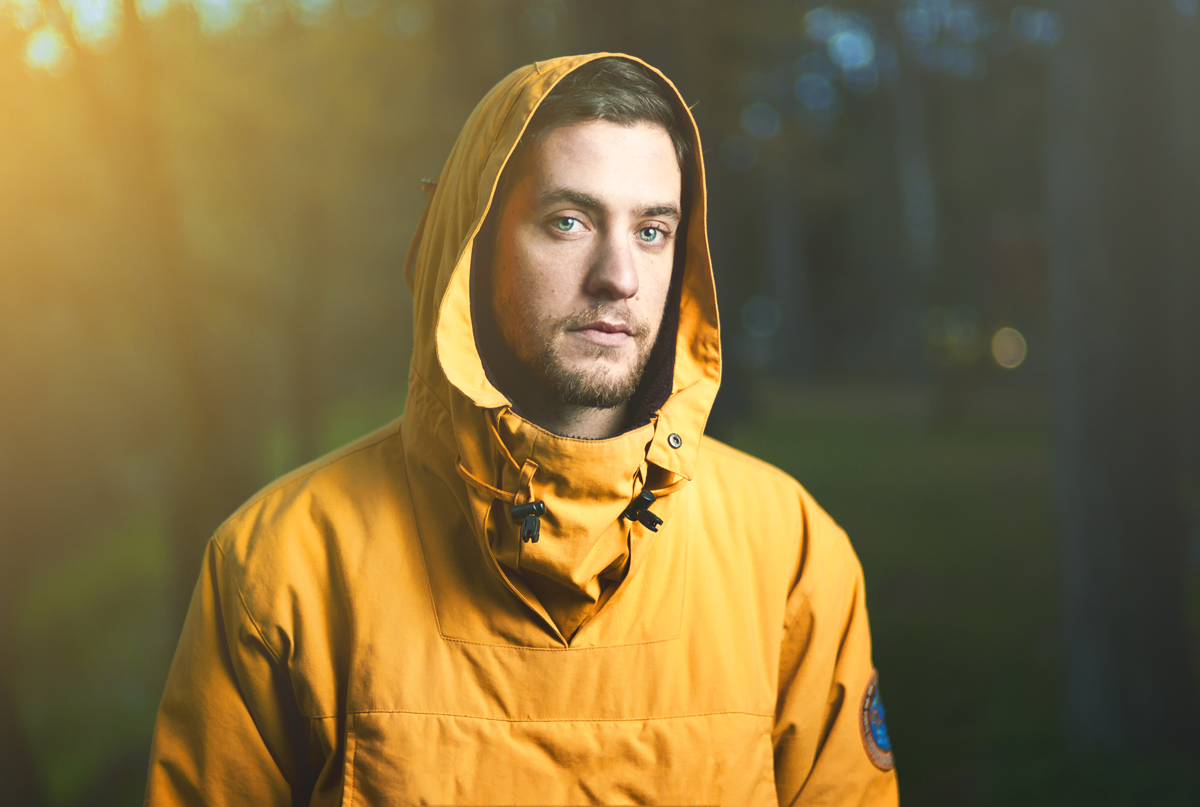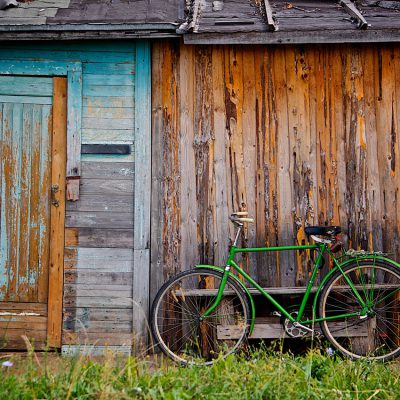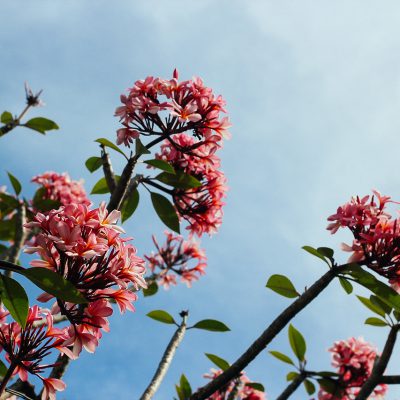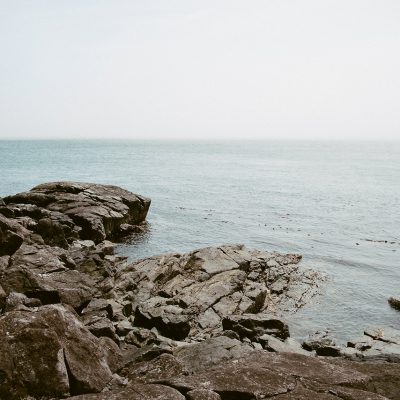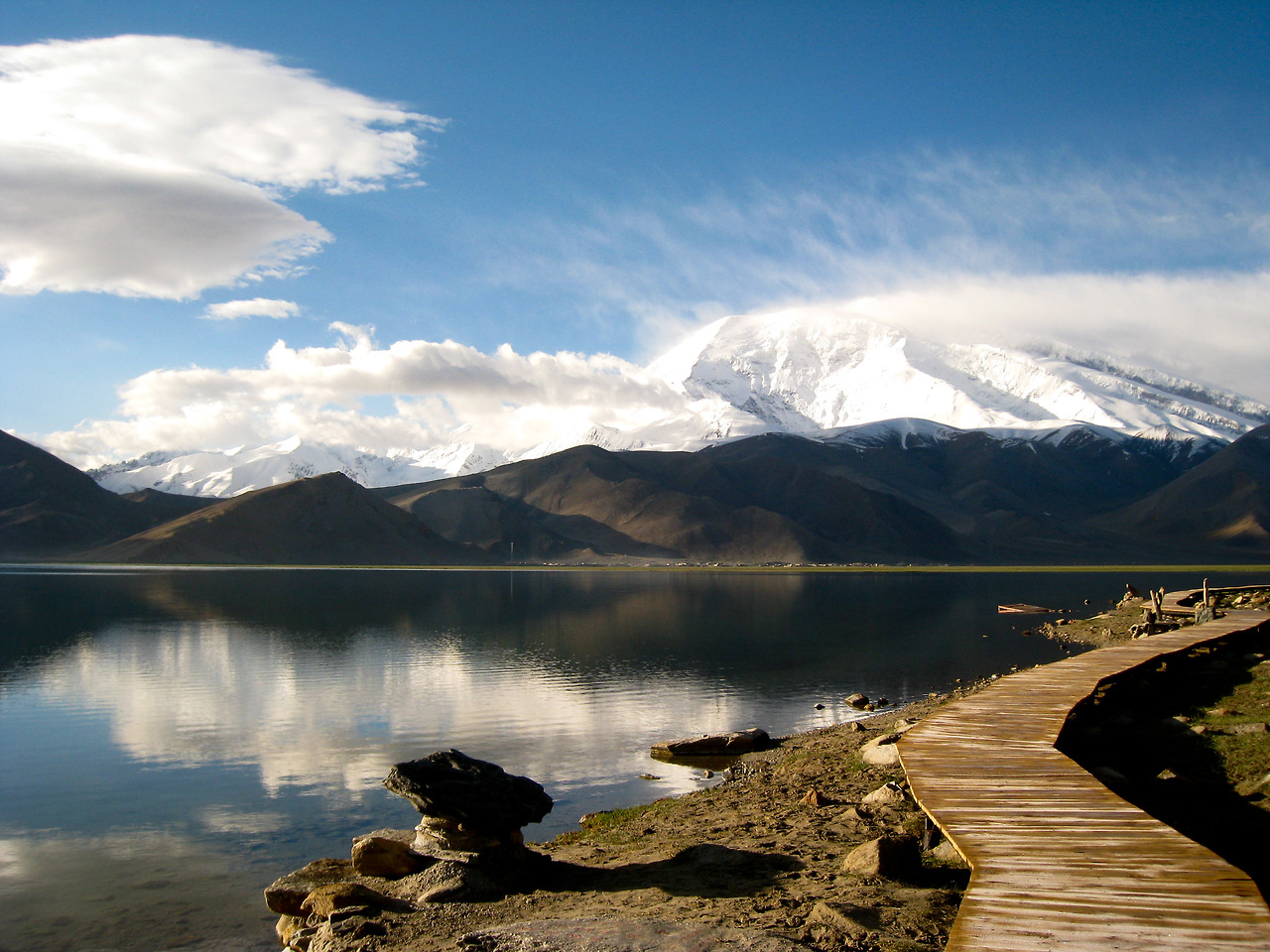episode 4:
Henk Ovink – Special Envoy International Water Affairs for the Kingdom of the Netherlands
.
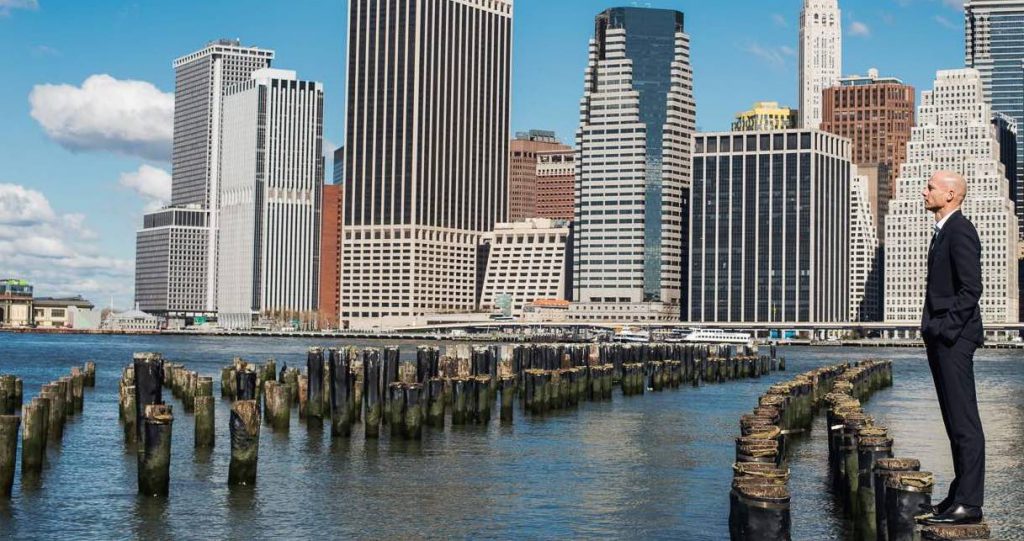
.
On Sourcing Matters episode 4 we welcome World Water Czar, Henk Ovink. Appointed by President Obama to become the special envoy to Water for the United States, Ovink was responsible for launching the HUD and Rockefeller funded program “Rebuild by Design” – a crowdsourcing initiative which pooled top ideas of the best designers & planners throughout the World to rebuild New York City after Super Storm Sandy.
QUICK GUIDE – this episode covers the following subjects:
- water is the essence of life – let’s learn from it
- to sustain a stable future we must “embrace” and not fight water
- contamination and scarcity of drinking water are problems of today
- how to keep freshwater in, and saltwater out
- proven solutions for climate change, sea level rise, floods, drought, famine
- creation of design competitions pooling the best minds in building resilience
- lessons from Super Storm Sandy clean-up are now changing the world
- water is leverage to change mind-sets
Sourcing Matters.show episode 4 recap:
90% of natural disasters in the world are water related. Currently, 2 Billion people around the globe drink contaminated water regularly, and there are 5,000 deaths a day related to poor water quality happening in Africa alone. As you’ll learn in this podcast discussion – we’ve pushed off the inevitable long enough. The longterm war may be about climate change, but as we speak there are thousands of concurrent battles focused on water.
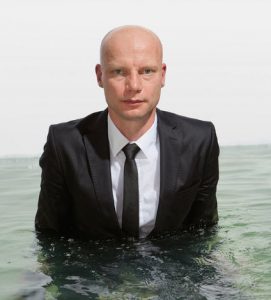 In our 35 minute conversation with World Water Czar Henk Ovink we learn about the many intensifying issues that need to be addressed with fresh and sea water. More importantly, we learn not just of the problems but of the solutions found today that will scale to build resilience and stability by “embracing” our realities of water. From Climate and water refugees in the developing world, and Social & Political unrest in the developed – our actions have forced this staple of life to wage war on a new world order that will inevitably disrupt a shrinking world of 7 Billion.
In our 35 minute conversation with World Water Czar Henk Ovink we learn about the many intensifying issues that need to be addressed with fresh and sea water. More importantly, we learn not just of the problems but of the solutions found today that will scale to build resilience and stability by “embracing” our realities of water. From Climate and water refugees in the developing world, and Social & Political unrest in the developed – our actions have forced this staple of life to wage war on a new world order that will inevitably disrupt a shrinking world of 7 Billion.
As Ovink has come to realize over decades of his work – water is leverage. And, to properly enact change with this leverage point we need to promote the solutions to these problems first. Ovink explains “Mankind needs disasters to Learn”. With 80% of the globes population expected to migrate to city densities, most often coastal cities, as more severe weather events and rising waters over the next few decades impact more – we must embrace these realities with a proactive approach. If not, what will be the impact on global economies? On human & Public health? On environmental stability? Henk shares how his initiatives to invest in system resilience have spurred change into action.
“Climate change is like a magnifying glass. The extremes become more extreme, while becoming a new normal. Flood, drought, raising temperatures, severe weather events, and sea level rise are the ways of the future.”
As Henk concisely describes it – resiliency is the ability to bounce-back. With the future being a little more grim than the present we must now embrace these intensifying natural disasters to adopt change in practice and mind-sets. It’s too expensive to wait. By engaging diverse stakeholders, Ovink has developed an arsenal of solutions that will those who use them to withstand the next storm, the next disaster, and most importantly, withstand fear and uncertainty.
Our chat begins with discussion of “Day Zero” quickly approaching in Cape Town, South Africa. A city of 3.8 million is down to 10% of water reserves. Even with rationing water – they’re set to run out by April 12th. As Ovink explains – this is not unique to much of the world. But, in a vibrant metropolitan city full of culture and innovation – it’s a bit shocking we’ve ended up here. What’s really interesting is the reason why this is so shocking. Henk explains that we saw this coming. With Cape Town’s high consumption and no broad reaching policy nor plan to restrict or reuse water the supply is running dry – leaving leadership and constituents to pray for rain. From Bangkok – to – New Delhi – to – Los Angeles, this is a situation to to learn from.
4000 years of being forced innovators has uniquely suited the Dutch to educate the world on keeping freshwater in and seawater out. In the podcast discussion Henk Ovink explains “Water is culture in the Netherlands”. You see, the country is a delta, with 90% of GDP earned in flood prone areas. Since the 12th century the Dutch have been orchestrating community efforts with shared common interests and goals focused on water. Taxes taken to safeguard a democracy via the conduit of water is actually a 900 year old Dutch innovation. Ovink goes on, “water has always been about connections for the Dutch people”. Now, 21 regional authorities constructed around their river basins and shared natural resources have arisen to shepherd the Netherlands into the future. Furthermore, this practice of collaboration around common interest has built intellectual property and scalable technologies that cast a large shadow for this small country of 17 million on a global stage. The Dutch are once again becoming superpowers in a World where business-as-usual that exercises water resources based on linear perspective fraught with waste and overuse just won’t cut it anymore.
As a member of the International Advisory Board for the City of Rotterdam, the Curator for the Rotterdam 2012 ‘Making a City’, and he initiated the research program Design and Politics – Ovink has long since been interested in innovating when it comes to water. Smart design practices that utilized basketball courts and sports fields at schools like French-drains to protect infrastructure and physical assets is in his blood, and is so very Dutch. Canals, dikes, windmills and levees all used to protect prime agricultural lands around the reclaimed deltas have unpinned Henk’s focus on “embracing” water.
When it comes to Water usage in food and agriculture – there is a great deal of opportunity for innovation. Currently, 70% of accessible freshwater throughout the global is used for agricultural irrigation. Henk explains that 71% of the planet is covered in water. But, 4% is sweet water, and only ½ % of that is available for our consumption. Fresh water is scarce, and since we don’t value water as we should – our process for growing food with agriculture is concerning in a world running up against planetary boundaries.
Henk works throughout the world developing capacity for farmers through deeper education and better technologies. From smarter planning, better mapping tech, and robust data analysis to reduce usage and present smarter planting criteria – his work with freshwater usage in raising our food is equally as important as his work in preventing the catastrophes associated to sea level rise, storm surge and severe weather events. In our chat Henk describes the practices he uses to reduce leakage in infrastructure, in promoting better practice that will reduce chemical run-off where water becomes the conduit of contamination and extensive unintended consequences of externalities. As you’ll hear, he also works to advance more efficient practices in irrigation – like their “drop per crop” approach which promotes drip irrigation vs. traditional center-pivot.
In 2012 Henk Ovink was appointed by President Obama and the Secretary of HUD, Shaun Donovan, to become the special envoy of Water to the US. He was directly responsible for launching the HUD & Rockefeller funded program Rebuild by Design – a global crowdsourcing initiative of top designers and planners to pool the best ideas which would rebuild NYC using federal resources after Super Storm Sandy. The program was such a success it reformulated the approach the US government used for federal payouts on Natural disasters – and thus required a new cornerstone of “resilience” built into infrastructure re-builds.
As Ovink describes it, Rebuild by Design at its core was to establish capacity through a coalition of public and private stakeholders via an initiatives focused on solutions with common goals. This is part of an inspirational future that Henk Ovink weaves for us all. Now, a new competition has launched in the Bay Area of California: Resilient by Design. What’s different with this latest rev as compared to cleaning up after Super Storm Sandy, this new competition is working proactively; to strategically look at a shared future with common goals before a natural disaster hits. That is a fundamental “change” disruptive to mankind. As Ovink states – it’s innovation that is now the new normal. And, as Ovink would tell you, that is fundamentally Dutch.
Currently, Henk Ovink travels the Globe armed with a tool chest of hope and potential. He’s unique. He comes in tow with a track record and clout to deliver on his promises. His most recent project hits us all where it counts – now using water as leverage to change culture, society, politics and economies through both reactionary and proactive methods:


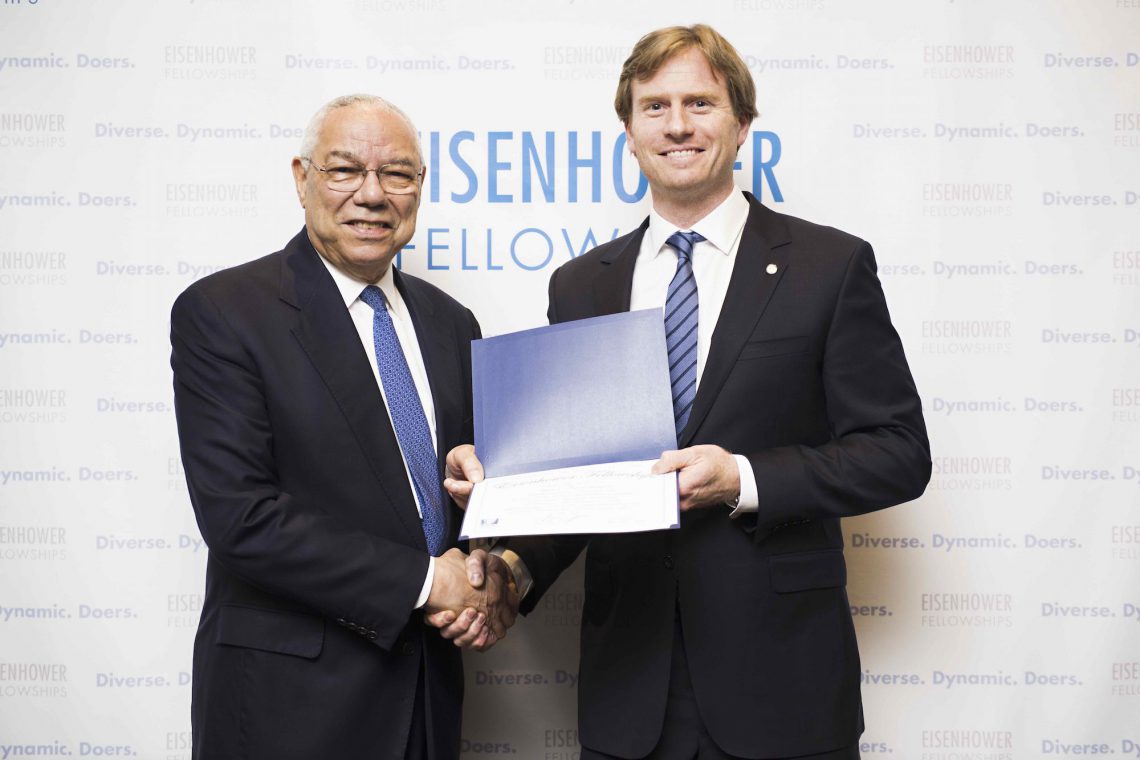
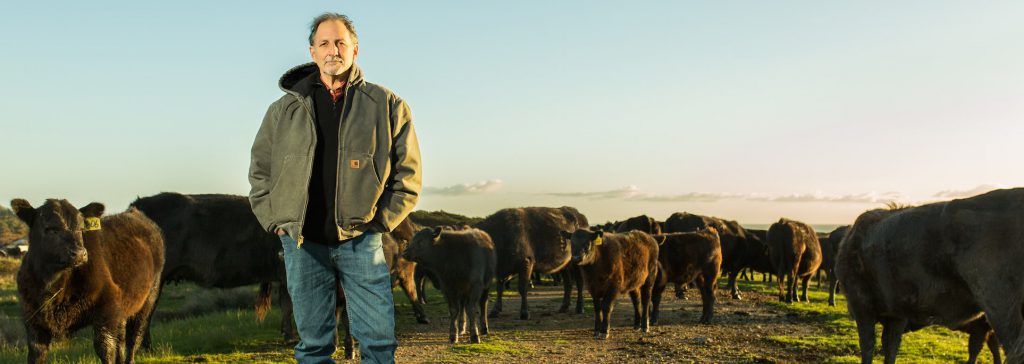
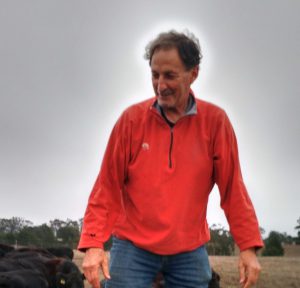
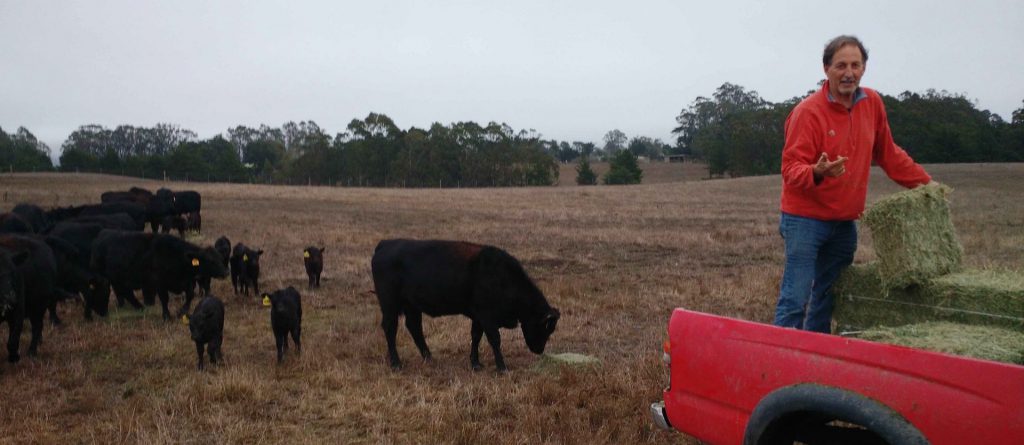
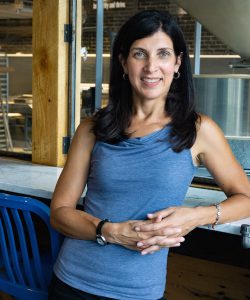 Founder & Managing Partners at FreshSource Capital, Lisa Sebesta has launched a creative financial vehicle to grow the local food movement into a sustainable regional food system initiative. Have a listen to how Lisa and partner Dan have found, evaluated and supported a dozen of the quickest growing food & agricultural companies of the Northeast.
Founder & Managing Partners at FreshSource Capital, Lisa Sebesta has launched a creative financial vehicle to grow the local food movement into a sustainable regional food system initiative. Have a listen to how Lisa and partner Dan have found, evaluated and supported a dozen of the quickest growing food & agricultural companies of the Northeast.